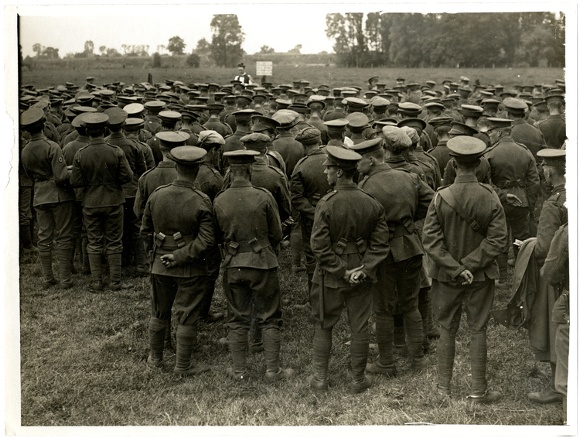Wilfred Owen, selected poems Contents
- Wilfred Owen: Social and political background
- Wilfred Owen: Religious / philosophical context
- Wilfred Owen: Literary context
- Wilfred Owen: 1914
- Wilfred Owen: Anthem for Doomed Youth
- Wilfred Owen: At a Calvary near the Ancre
- Wilfred Owen: Disabled
- Wilfred Owen : Dulce et Decorum Est
- Wilfred Owen: Exposure
- Wilfred Owen: Futility
- Wilfred Owen: Greater Love
- Wilfred Owen: Hospital Barge
- Wilfred Owen: Insensibility
- Wilfred Owen: Inspection
- Wilfred Owen: Le Christianisme
- Wilfred Owen: Mental Cases
- Wilfred Owen: Miners
- Wilfred Owen: S.I.W
- Wilfred Owen: Soldier’s Dream
- Wilfred Owen: Sonnet On Seeing a Piece of Our Heavy Artillery Brought into Action
- Wilfred Owen: Spring Offensive
- Wilfred Owen: Strange Meeting
- Wilfred Owen: The Dead-Beat
- Wilfred Owen: The Last Laugh
- Wilfred Owen: The Letter
- Wilfred Owen: The Parable of the Old Man and the Young
- Wilfred Owen: The Send-Off
- Wilfred Owen: The Sentry
- Wilfred Owen: Wild with All Regrets
Religion
Owen’s religious upbringing means that Christian imagery infuses much of his work. His belief in the text, ‘Greater love has no one than this: to lay down one’s life for one’s friends’ John 15:13, is at the heart of the pity of war which he said was the main theme of his poetry.
God
The image of an all-powerful, but not always all loving, God is found in the following poems:
- In The Parable of the Old Man and the Young God tests father Abram’s faith but sends an angel to intervene and save the boy Isaac from death. In war the Old Man sacrifices the Young and no one intervenes – a reflection on the seeming powerlessness of God
- In Soldier’s Dream God is vengeful, ensuring the continuance of war through his military agent, Michael
- At the end of his Sonnet: On Seeing a Piece of Our Heavy Artillery Brought into Action, Owen prays that once the war is over God will curse the weapons of war which have caused so much destruction.
Jesus Christ
Whereas Owen sometimes paints God as a vengeful force, the image he portrays of Jesus is gentle and peace loving:
- The name of Jesus Christ is used as the first soldier cries out in pain in The Last Laugh. As Owen explained to his pious mother, on the field of battle blasphemy and prayer are akin
- The Soldier’s Dream is of Jesus as a Saviour who comes to save the men from death by destroying the weapons of war
- Jesus is represented as a plaster image in Le Christianisme. Like the men at the front, he has become a casualty of war buried under the rubbish and rubble
- In At a Calvary near the Ancre the image of the crucified Christ at a crossroads in a French village has been shelled. The men at the front ‘who love the greater love’ like Jesus lay down their lives for others.
Faith, doubt and the church
 In the face of devastating carnage, conventional platitudes about God’s love and control no longer sufficed. Some could only reconcile what they had been taught and what they now experienced by drawing a line between God’s character and the assertions of the church which claimed to represent him.
In the face of devastating carnage, conventional platitudes about God’s love and control no longer sufficed. Some could only reconcile what they had been taught and what they now experienced by drawing a line between God’s character and the assertions of the church which claimed to represent him.
- The poignant line ‘for love of God seems dying’ in Exposure echoes the line ‘we turn back to our dying’ l.30. Owen is being ambiguous. The suggestion is both that God’s love for the men is dying and that their love for him is dying
- In both Le Christianisme and At a Calvary near the Ancre Owen depicts representatives of religion (buried saints and proud priests) who ensure their own safety yet command and commend the sacrificial death of men for ‘God, King and Country’
- Similarly Owen sees the ministers of church and state as complacent propagandists for war in The Dead Beat
- Most bitterly, in Anthem for Doomed Youth Owen sees the rites and rituals of the church as a mockery of the dead.
Christian teaching in war
Owen grappled with the contradiction of being called both to fight against, and show love towards, his enemies. The first instruction was pronounced from pulpits, the other he found in the gospels where Jesus said ‘Love your enemies’:
- Strange Meeting demonstrates this collision of values. The ‘strange friend’ Owen addresses in his dream of hell says, ‘I am the enemy you killed, my friend’ l.40 and suggests, ‘Let us sleep now.’ l.44
- At a Calvary near the Ancre celebrates the Christ-like qualities of the men ‘who love the greater love’. Owen states very simply they ‘do not hate’
- In Greater Love Owen demonstrates that, in spite of other doubts, he holds on to Christ’s endorsement of the worth of human self-sacrifice on behalf of others John 15:13
- Spring Offensive, Owen’s last complete poem, is poignant with the pity of war. The love men show for each other on the field of battle is illustrated before during and after the attack.
- English Standard Version
- King James Version
- English Standard Version
- King James Version